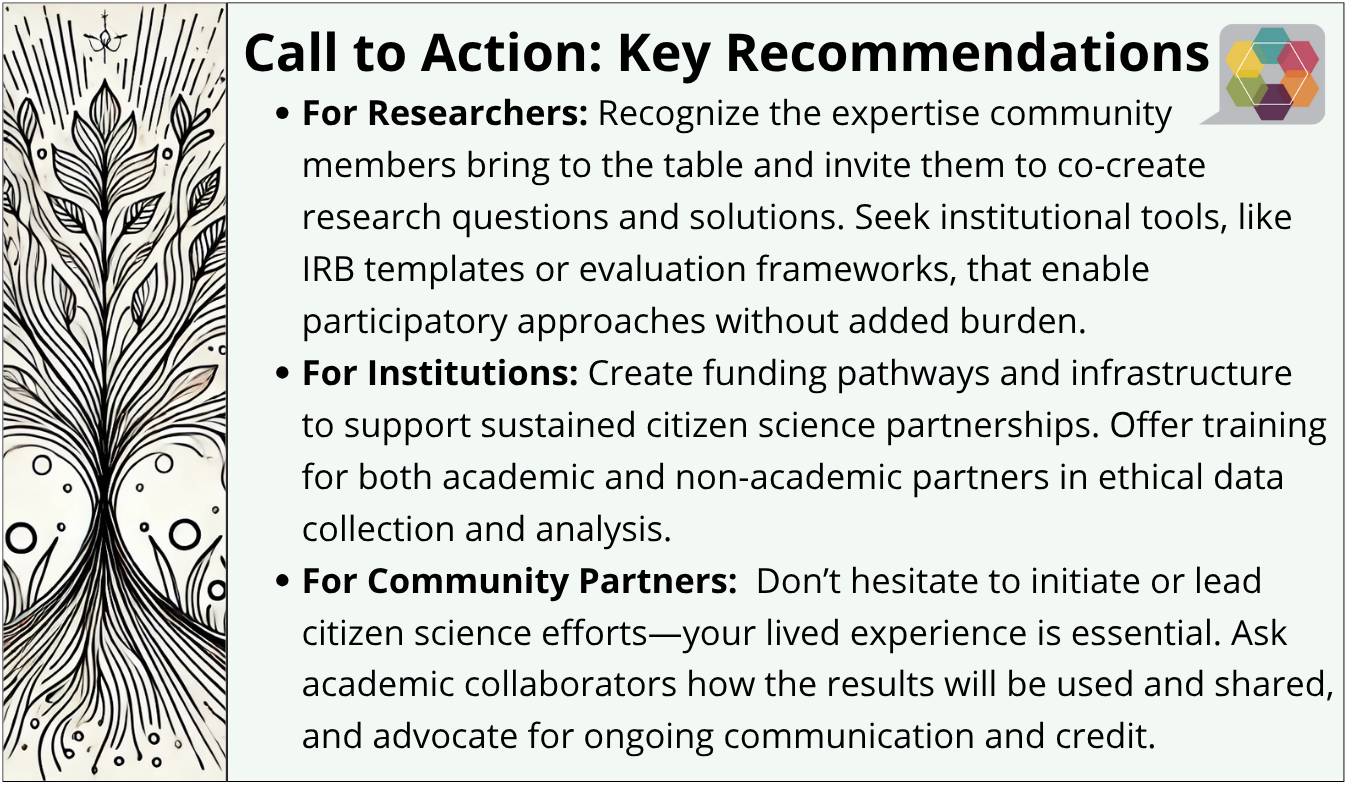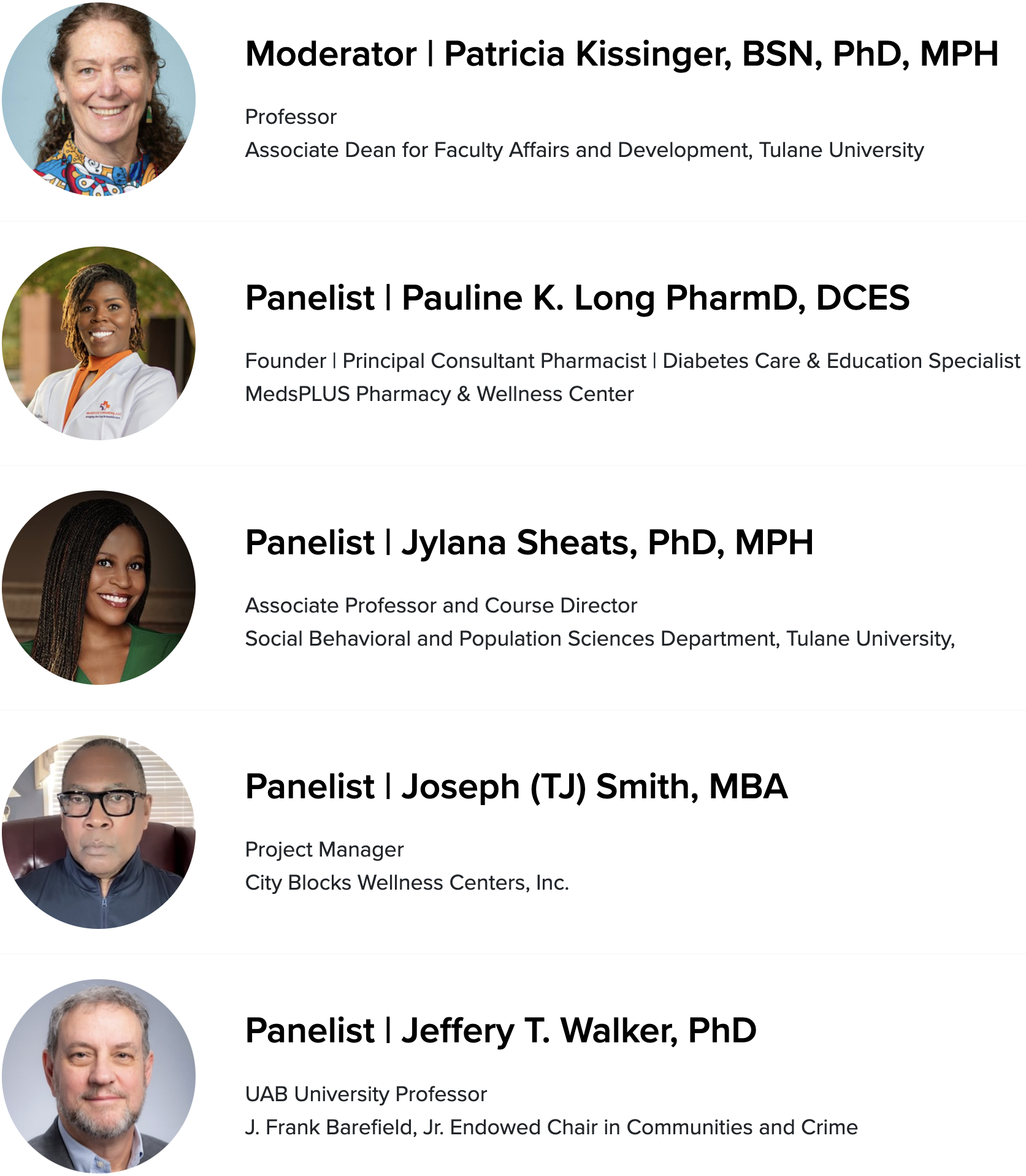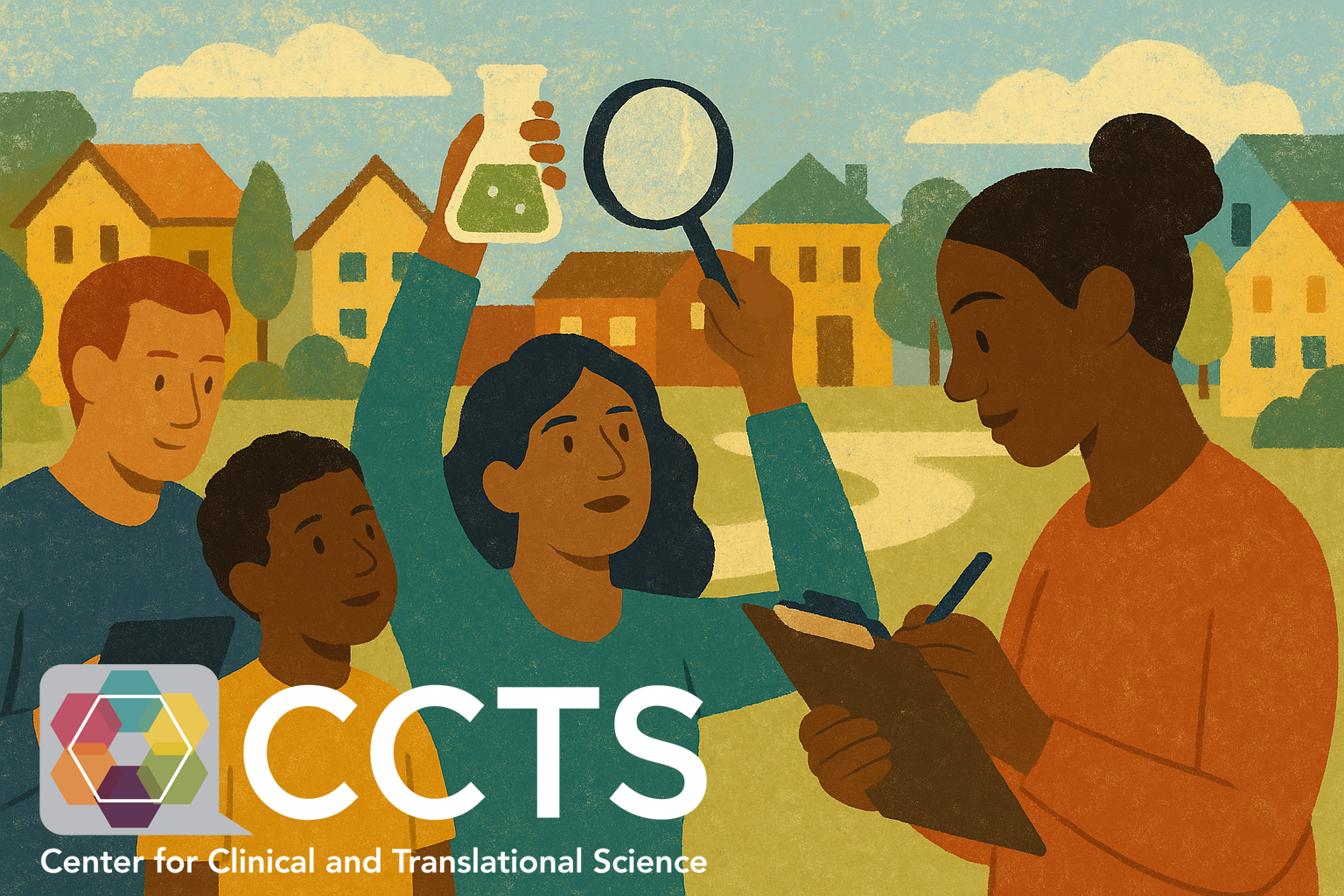Written by Brian C. Moon – October 15, 2025

The Center for Clinical and Translational Science (CCTS) recently hosted a Community Engagement Institute (CEI) Perspectives panel discussion on September 26, 2025, exploring how citizen science can empower communities, reshape research, and redefine the relationship between science and the public. The virtual event, titled “Citizen Science for Health: Bridging Communities and Research”, convened researchers, community leaders, and practitioners from across the CCTS Partner Network for a dynamic conversation about participatory research and shared discovery.
Panel Discussion Highlights

Defining Citizen Science in Context | Panelists opened by offering working definitions of citizen science—not just as data collection by non-scientists, but as a broader model for collaboration, where members of the public actively participate in shaping scientific inquiry, identifying local priorities, and interpreting outcomes. In public health, citizen science often takes the form of community members helping to track disease trends, assess environmental risks, or collect firsthand observations of neighborhood health conditions.
From Engagement to Co-Ownership | One of the most powerful themes was the idea that citizen science isn’t just about increasing engagement—it’s about shifting power. Attendees were encouraged to move from outreach to co-ownership, recognizing that communities are already generating valuable insights and solutions. As one panelist shared, “We’re not asking people to help with our science—we’re doing science together.”
Barriers and Ethical Considerations | Panelists discussed challenges such as navigating Institutional Review Board (IRB) requirements, maintaining data quality, and ensuring that community partners are equitably credited and compensated. Several attendees raised important questions about ethical enrollment, open data, and sustainability beyond the lifespan of a grant-funded project.
Tools, Training, and Institutional Support | The panel explored how institutions like the CCTS can provide scaffolding for citizen science initiatives—including IRB partnerships, funding access, data sharing platforms, and training for both researchers and citizen scientists. Examples shared included using technology to support environmental mapping, co-developing health literacy tools, and applying community-led approaches to food insecurity.
What Participants Said
The event discussion reflected wide interest across roles and institutions, with attendees joining from UAB, Tulane, LSU, The Arc of Central Alabama, and many others. They shared goals such as “learning more proactive ways to get citizens involved,” “connecting clinics to communities,” and “building excitement around science and research.”
Attendees also exchanged resources during the session, including links to real-world examples like the FEAST study (Empowering Community Residents to Use Technology to Assess and Advocate for Healthy Food Environments), IRB collaboration tips, and open data repositories like re3data.org.
Call to Action: Supporting the Citizen Science Ecosystem

For Researchers:
- Recognize the expertise community members bring to the table and invite them to co-create research questions and solutions.
- Seek institutional tools—like IRB templates or evaluation frameworks—that enable participatory approaches without added burden.
For Institutions:
- Create funding pathways and infrastructure to support sustained citizen science partnerships.
- Offer training for both academic and non-academic partners in ethical data collection and analysis.
For Community Partners:
- Don’t hesitate to initiate or lead citizen science efforts—your lived experience is essential.
- Ask academic collaborators how the results will be used and shared, and advocate for ongoing communication and credit.
“Citizen science offers a model where communities don’t just participate in research, they help define it,” said Clifford Kennon, EdS, MPA, CCTS Engagement of Communities Program Director. “This event reminded us that data becomes powerful when it reflects the lived experience of the people it’s meant to serve.”
Stay Engaged with the CCTS and CEI Perspectives
To revisit the discussion or explore past CEI Perspectives events, visit the CCTS Video Channel. For updates on future events and opportunities to get involved in citizen science efforts across the CCTS Partner Network, subscribe to the CCTS Digest and follow us on LinkedIn.